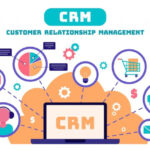
In today’s interconnected digital landscape, seamless integration of systems and data is crucial for businesses to thrive. Mulesoft, a leading integration platform, has emerged as a go-to solution for organizations looking to connect their applications, data sources, and services. At the heart of Mulesoft’s success are skilled Mulesoft developers who possess the expertise to unlock the full potential of the platform. In this blog post, we will explore the role of Mulesoft developers, their skills and responsibilities, and the impact they have on driving successful integration projects.
The Role of Mulesoft Developers
Mulesoft developers are the driving force behind designing, building, and maintaining integration solutions using the Mulesoft Anypoint Platform. Their primary responsibility is to create seamless connections between disparate systems, enabling efficient data flow and communication. They work closely with stakeholders, architects, and business analysts to understand integration requirements and translate them into effective solutions. Mulesoft developers bring a unique blend of technical skills, domain knowledge, and problem-solving abilities to tackle complex integration challenges.
Skills and Expertise
Successful Mulesoft developers possess a range of technical skills and expertise:
- Mulesoft Anypoint Platform: Mulesoft developers are proficient in working with the Anypoint Platform, which includes the Anypoint Studio for building integrations, the Anypoint Exchange for sharing and reusing assets, and the Anypoint API Manager for managing APIs and enforcing policies.
- Integration Patterns and Best Practices: Mulesoft developers have a deep understanding of integration patterns such as point-to-point, publish-subscribe, request-reply, and orchestration. They are familiar with industry best practices for designing scalable, resilient, and secure integration solutions.
- Data Transformation and Mapping: Developers are skilled in data transformation techniques using technologies like XML, JSON, XSLT, and DataWeave. They can efficiently map data fields and structures between different systems to ensure seamless data flow.
- API Design and Development: Developers are proficient in designing and developing APIs using Mulesoft’s API-led connectivity approach. They understand RESTful principles, API security, versioning, and documentation.
- Connectivity and Protocols: Mulesoft developers have knowledge of various connectivity options and protocols, including HTTP, JDBC, JMS, FTP, SOAP, and more. They can configure connectors and adaptors to establish connections between systems.
- Troubleshooting and Debugging: Mulesoft developers have strong troubleshooting and debugging skills to identify and resolve integration issues. They are adept at using tools like Mule Debugger, Anypoint Monitoring, and log analysis techniques to diagnose and fix problems.
Impact on Integration Projects
Mulesoft developers play a crucial role in the success of integration projects, and their contributions are far-reaching:
- Efficient System Integration: Developers enable organizations to integrate systems and applications seamlessly, facilitating the flow of data and information across the enterprise. This leads to improved operational efficiency, enhanced productivity, and streamlined business processes.
- Enhanced Data Visibility and Insights: By connecting disparate data sources, developers enable organizations to gain a holistic view of their data. They facilitate the consolidation and transformation of data, making it accessible for analytics, reporting, and decision-making purposes.
- Scalability and Flexibility: Developers design integration solutions that are scalable and flexible, allowing organizations to adapt and expand their integration capabilities as business needs evolve. They architect solutions that can handle increasing data volumes, transaction loads, and system complexity.
- Cost Optimization: Developers help organizations optimize costs by rationalizing the use of applications and systems, eliminating data silos, and promoting reuse.













































Recent Comments